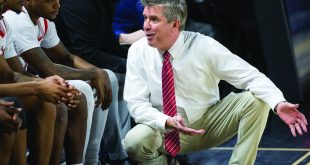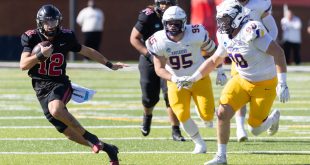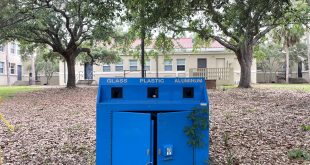Written by Kelsey Dickerson, Staff Writer
After the events that occurred during spring break in Panama City last year, Bay County is taking measures to shut the party down.
According to Dennis Pillon, reporter for AL.com, the vote to ban alcohol on the beaches of Panama City during spring break went through last May with a vote of five to zero. The Panama City Beach tourism FAQ confirms that no alcohol will be allowed on the beach, regardless of the consumer’s age, throughout the month of March. Additionally, all bars and clubs within Bay County are set to close at 2 a.m., rather than 4 a.m., a ruling that went through in 2014.
Last year seemed to be the peak of the party. As CNN reports, authorities made a little over 1,000 arrests, three times as many as in 2014—202 of which were related to drugs. 49 firearms were also confiscated in 2015, up from only nine the year before.
In addition to the arrests, Bay County sheriff Frank McKeith came forward to CNN reporters about a video which surfaced in April of last year of an incapacitated young woman being gang raped on the beach just feet away from a group of partying spring-breakers.
“This is not the first video we’ve recovered. It’s not the second video,” McKeith told CNN. “It’s not the third video. There’s a number of videos we’ve recovered with things similar to this, and I can only imagine how many things we haven’t recovered.”
After an eye-opening expose aired on Fox News’ “Sean Hannity Show,” the measures taken in 2014 to curb drinking—requiring an I.D. to drink on the beach and closing the bars two hours early—were proven ineffective.
Two media sources for college students have weighed in. Total Frat Move, a blog about fraternity and college life says, “You (spring-breakers) only have yourselves to blame, too. You know that, right? Actually, you should thank them (the PCB City Council). Futures are ruined on that beach.”
While COED, another college life news source and blog, has removed PCB from the number one spot on their annual list of “Top 20 Trashiest Spring Break Destinations.” Citing all-time high levels of danger on the beach last year, the site was “more than a little disappointed in all the ruckus.” According to COED, “trashy” should mean cheap fun and not the sometimes life-endangering situations that cropped up on the beach in Panama City.
Freshman nursing major Alyssa Wise says she probably won’t go back to PCB.
“I’ve been two years in a row and it’s always the same thing,” Wise said. “It’s chaos.”
Tucker Prestridge, freshman music major says he isn’t surprised at the ban.
“They were sort of notorious for that type of thing (partying and drinking),” Prestridge said. “I don’t know that it (the ban) will attract more people to the beach, though. It might even repel people who weren’t involved in heavy drinking, like adults who wanted to spend the week on the beach with a six pack. I wouldn’t be surprised at all if pissed off college students boycott the beach within the next few weeks.”
Students who do decide to go to PCB for Spring Break next week should be advised of the new changes.
 The Spectator The independent student newspaper of Valdosta State University
The Spectator The independent student newspaper of Valdosta State University




